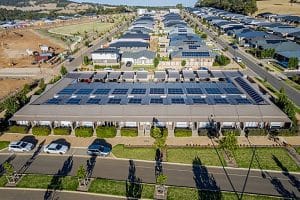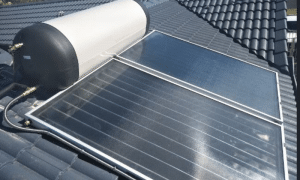After two Australian states and territories implemented generous solar gross feed in tariff initiatives this year; rumours were circulating that perhaps Tasmania may soon follow.
With the A.C.T currently offering 50.05c/kWh and New South Wales Solar Bonus Scheme paying 60c/kWh to owners of residential solar power systems, the pressure was on the Tasmanian government to offer similar arrangements.
Gross feed in tariffs pay a premium on all the electricity produced by a solar power system, whereas a net system only pays owners of systems for surplus electricity exported to the mains grid. Gross feed in tariffs have been shown time and again to be one of the best ways to stimulate solar power uptake.
However, the hopes that a gross system will be introduced in Tasmania have now been dashed and furthermore, Tasmania will offer one of the lowest net feed in tariffs in Australia.
In a letter received by a representative of Apollo Energy, a division of national solar solutions provider Energy Matters, who enquired about the current state of play; David Llewellyn, Tasmania’s Minister for Primary Industries and Water, Energy and Resources and Planning confirmed that a gross feed in tariff is off the table for the island state.
In the letter, Minister Llewellyn says:
——-
“For much of 2009 the Government has been listening to arguments for and against mandating premium fee in tariffs for any electricity fed into the grid by small, residential based renewable generators, such as rooftop photovoltaic panels.
Having listened to the arguments and taken heed of the policy principles for feed-in-tariff recently agreed by the Council of Australian Government, the Government has decided that it is not fair or sensible to force other people to pay more than a fair and reasonable price for such electricity.
We are satisfied that Aurora Energy’s current policy of paying the full retail price for any electricity that is supplied back to the grid is fair and reasonable in the Tasmanian context.
The Government will therefore mandate that a Feed-In Tariff will be provided in a manner that is consistent with the agreed national principles for Feed-In Tariff schemes.
It will be a net metering scheme with the tariff to be paid at a fair and reasonable rate.
On mainland Tasmania a fair and reasonable rate will be taken to be a rate equivalent to the unit price within the relevant retail tariff. For most households, that will be tariff 31, which at present is 19.363 cents per kilowatt hour.
For further details on the Tasmanian Government’s decision to mandate a FiT, please refer to my Energy Policy Statement, released on 3 December 2009.
—-
Tasmania’s Energy Policy Statement can be viewed here (PDF).
The net feed in tariff rate of 19.363 cents per kilowatt hour is extraordinarily low, even compared to other Australian states adhering to the net model. South Australia offers 44 cents per kilowatt hour and Victoria, 60 cents per kilowatt hour.
The Tasmanian government’s decision will severely disappoint many solar supporters in the State, whose only hope now appears to be the introduction of a national, uniform gross feed in tariff; something that Energy Matters has been lobbying for throughout 2009 via its petition site at FeedInTariff.com.au.
What are your thoughts about the Tasmanian Government’s decision? Discuss it in our forums.







































